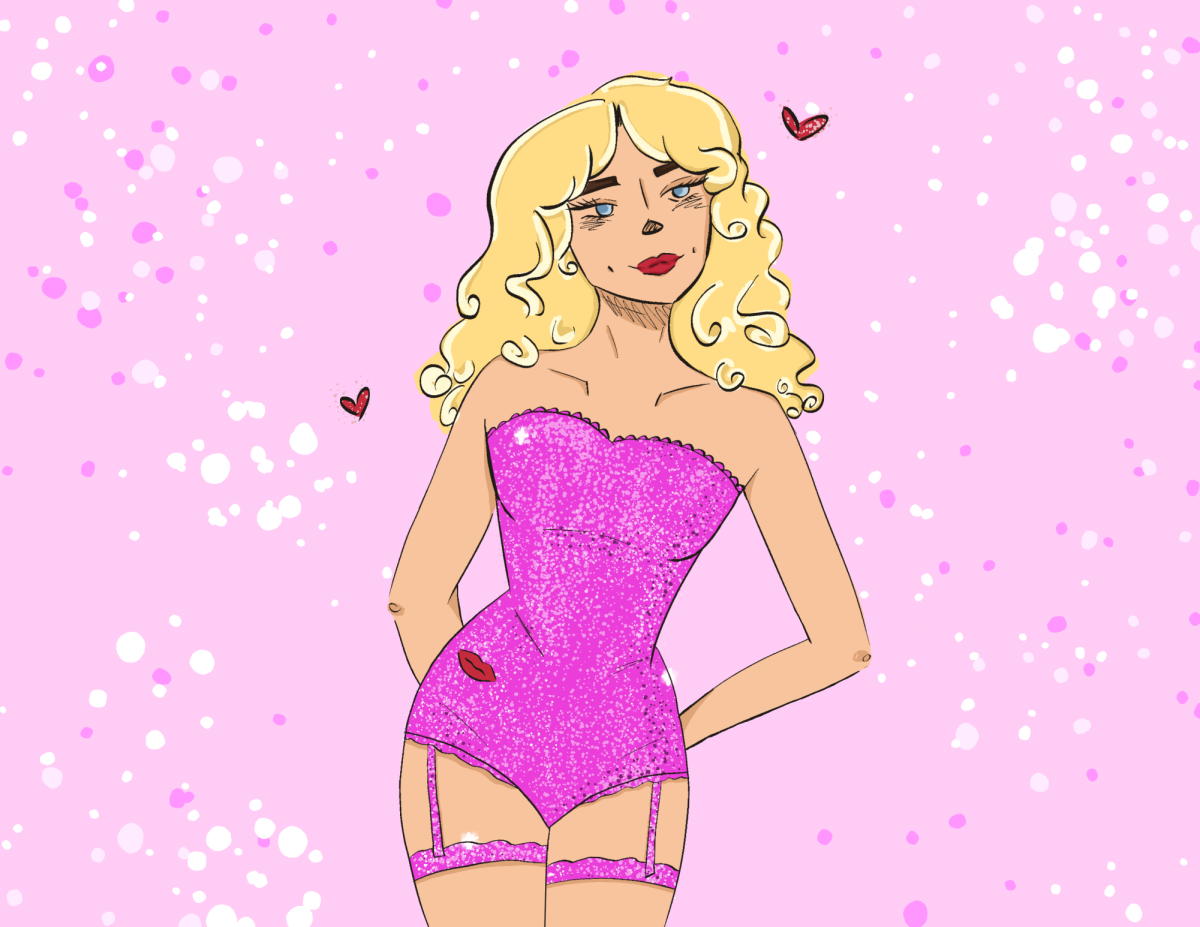
Nina Ardalan
Glamour. Theatricality. Controversy. These three traits defined the pop industry at the tail end of the 20th century with the rise of icons like Britney Spears, Madonna, and Beyoncé. From their catchy radio-ready music to their faces plastered on every tabloid, it was impossible to ignore their presence. These celebrities embodied the popstar: a character in the music industry so iconic they can rebuild the landscape of entertainment, leaving a lasting impact on our perception of pop music. As of late, though, it seems like we’ve lost the “character” aspect of the pop culture figure. Aside from multi-hyphenate icons like Lady Gaga, no recent pop star has fully played into this role.
However, as I tuned in to “Saturday Night Live” on Oct. 18, I saw a potential turn in the narrative. Sabrina Carpenter, both host and musical guest, showcased her growing status in pop culture throughout the entire episode. Every second of air time accentuated the prime parts of her persona: theatricality, sexuality, and most importantly, the ability to stir up public discourse. After following Carpenter’s career for some time now, I can attest that she is well on her way to becoming not only a pop icon, but also reshaping how we view this role in culture.
In the past, the line between being a pop culture icon and a person has been blurry. For example, while the world enshrined Spears as the queen of pop music, tabloids tore her apart to her very core. Every aspect of her life was criticized and deemed as obscene — it was no longer about her role as a performer. Her management allowed the media to disrespect and abuse her, exploiting their extreme characterizations and invented controversies. This mistreatment eventually led to Spears’ highly publicized breakdown in 2007 and conservatorship, and Spears arguably has not recovered to this day. Though the situation is undoubtedly more complex, the sheer impact of society wearing down Spears’ self-identity by projecting onto her celebrity character cannot be ignored.
Mirroring Spears, Carpenter has recently faced similar criticisms claiming her performances and aesthetic are too sexually charged. This past summer, the cover art for her latest album, “Man’s Best Friend,” depicted the singer in a submissive position, sparking discourse across the web.
For months, the internet remained divided on Carpenter’s persona being centered around her sexuality. Critics cried of the harm she causes in pushing a hypersexualized anti-feminist agenda. This charged debate served as her initiation into being a pop culture icon, with much of the backlash mirroring the degree of hate Spears received for her similarly provocative music. One crucial difference: Sabrina Carpenter still maintains her agency.
Following the backlash, Carpenter had the option to back down. Instead, two weeks after the initial post unveiling the cover for “Man’s Best Friend,” Carpenter posted the alternate design, commenting that it was “Approved by God.” When she dropped the album, its contents continued to double down on her proudly hypersexual persona, featuring controversial tracks like “Tears,” where her lyrics get as explicit as a song about sex can be.
To see a pop star so unbothered by the constant criticism, and even purposefully playing into their public characterization, is novel. As I continue to follow the discourse, I have become enamored by how little of the backlash Carpenter takes to heart. At some point, I fully expected a breakdown or public response against the digs about her alleged immorality. However, quite the opposite has occurred; she has only become more playful. During her “SNL” monologue, she didn’t hesitate to joke about the criticism. If anything, she is thriving off of the controversy.
To Carpenter, her role as a pop star is a character, and her identity is detached from this. This is what makes her such a refreshing figure in the music industry right now. Following a long pattern of musicians fighting to prove their longevity and seriousness in the limelight, Carpenter is having fun on her own terms. As she develops her persona, Carpenter continues to reshape the relationship between the artist and controversy, placing her at the heart of the newest age of pop culture. She capitalizes on your perception of her and I guarantee you, she’s in on the joke.